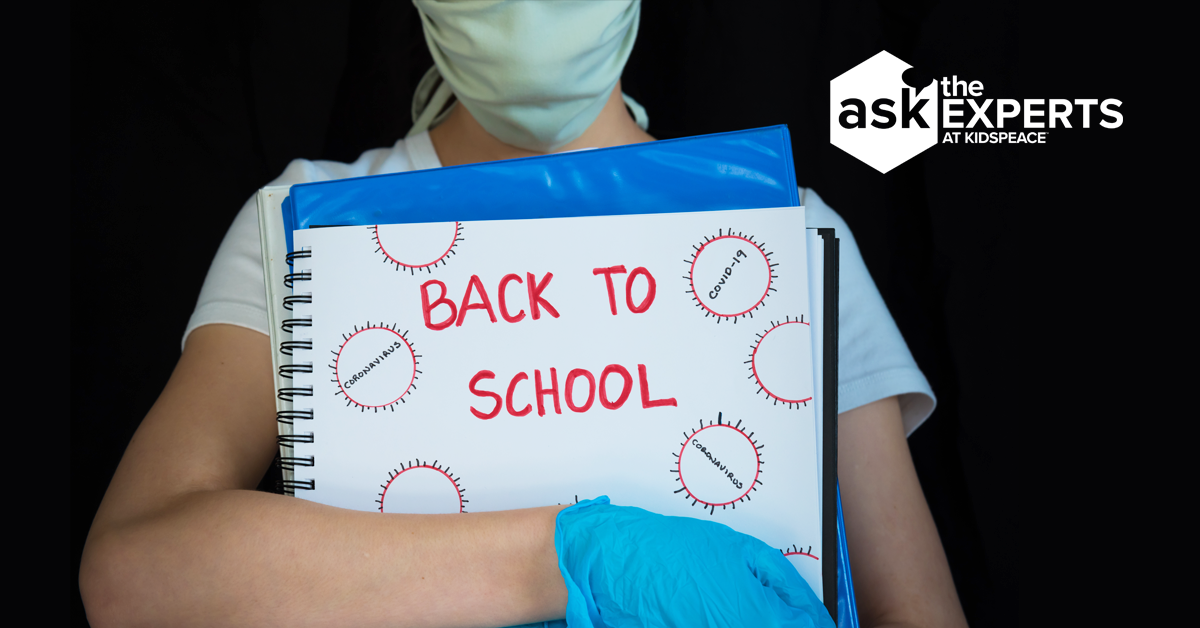
It’s back to school time across America, amid unprecedented uncertainty from the COVID-19 pandemic. For Ask the Experts this month, we asked KidsPeace educators to share advice to parents on how to meet the unique challenges this year.
Coping with the time of anxiety
by Chris Ferry
Anxious about the start of a new school year? How about starting one in the middle of a global pandemic?
You and millions of other parents around the U.S. are trying to wrap their minds around the uncertainties of having your son or daughter attend school in person, completely virtually, or a hybrid of the two. These choices alone can raise anxiety as you weigh the importance of socialization to your child’s development against potential exposure to COVID-19. Tuning into any major media outlet will undoubtedly increase your anxiety levels, with COVID having impacted every facet of our lives for the last six months.
To begin with, let’s understand that anxiety is a NORMAL human experience, and can be a beneficial response in anticipation of dangerous situations. Your body is telling you to stay on your toes because something isn’t right (think Peter Parker’s ‘Spidey-Sense’). However, sometimes the process can hinder rather than help and your anxiety response can be impacted by a perceived threat that may not actually be real or is completely out of your control.
So, what CAN you and your child do when feeling anxious – and better still, how can you combat that anxiety before it becomes overwhelming?
Before it occurs:
-
- Get into a good sleep pattern (children should get 9 to 11 hours, teens 8 to 10 hours, and adults 7 to 9 hours).
- Fruits and vegetables have been shown to help calm anxiety and stress. Some choices that are shown to be especially good at fueling efforts to ease anxiety: avocados, spinach, and oranges.
- Practice deep breathing exercise and think of ways to refocus your attention. Remember: Always practice when you are calm and without anxiety.
When it occurs:
-
- Take deep breaths; through the nose and out the mouth…repeat, repeat. Breath in and out longer than normal.
- Smile and relax your body posture. Anxiety takes its lead from what you do, and it will fade if you’re acting in a way that isn’t consistent with a perceived threat.
- Self-talk and tell yourself to “act normal” to change the feedback loop and decrease the anxiety.
Practice these tips and remember, it’s not okay to feel upset or anxious to the point you avoid activities and aren’t living your life.



